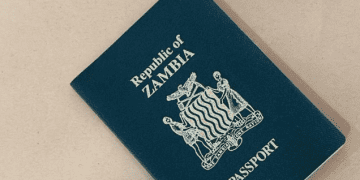By Adel Mumba/Melo Media | Sunday, 28th January 2024
Zambia has become the latest country to enact an Access to Information law, as President Hakainde Hichilema signed the bill,
more than 20 years since it was first introduced in parliament. While some have welcomed the move, rights activists say the measure still falls short of international standards.
Under the new law, every citizen can request unclassified information from the government on any issue of public interest.
Grant Tungay, the spokesperson for the Zambian Civil Society Organizations’ Coalition on Access to Information, or ATI, expressed that the new law is not perfect, but it is a good start.
“This law will enable us to start to build a culture of openness and transparency and it’s going to take years for us to do this, but let’s start now their good aspects and there are concerning aspects; but ultimately we have to start somewhere, and we can start to sensitize people to start to expect an openness and transparency from government officials,” he said.
The new law aims to provide a right to access information as guaranteed in the U.N. Convention against Corruption and the African Charter on Human and Peoples’ Rights.
It also outlines the procedures to request information and places Zambia’s Human Rights Commission as an oversight institution on such requests.
According to the United Nations, access to information promotes the participation of citizens in governance, enhances public confidence in government and increases the legitimacy of public institutions.
The Media Institute of Southern Africa, or MISA, is an umbrella organization representing MISA national chapters in the Southern African Development Community.
MISA Zambia welcomes the new law, argues it may provide little help to journalists, opposition parties and civil society, as it does not address some critical issues.
The say the act should provide clear timelines stating how long one should wait when they request for information or when they appeal against decline to an information request from a public body.
The President said the enactment of the Access to Information law is a historic achievement.
Cornelius Mweetwa is the chief government spokesperson and minister of information and media. He expressed that the new law is in line with the administration‘s campaign promise to promote human rights and democracy.
“The president has assented to the Access to Information bill, which is now law, which has widened further the democratic space in Zambia, the precincts within which citizens freely participate in engaging the government,” said Mweetwa.
Zambia now joins Angola, Malawi, Namibia, Tanzania, South Africa, and Zimbabwe, which have enacted access to information laws.

















